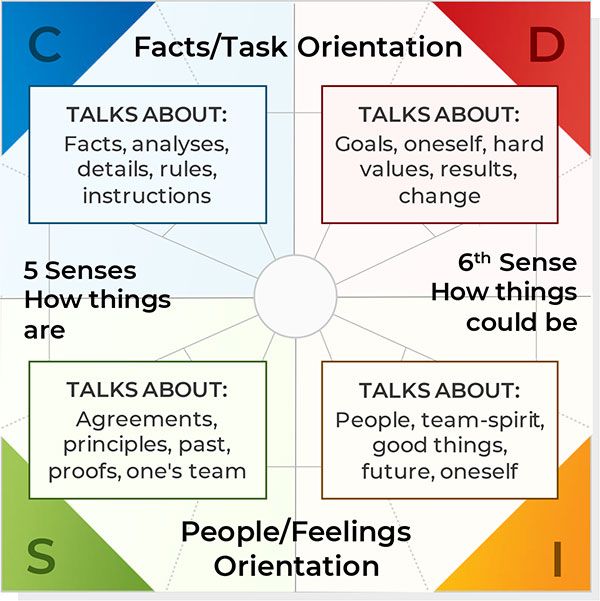Psychometric assessments:
How we ensure your new recruit will be a good cultural fit
As a candidate undergoes our rigorous recruitment process, we gain a very good understanding of their skills, as well as their personality traits. However, it is recommended that candidates undergo psychometric assessments to further verify our understanding of their personality and behavioural styles. Hyperlink to Recruitment Process page
Not only does this psychometric assessment substantiate our understanding of a candidate, but it also enables the employer to obtain a more in-depth understanding of their new hire.
A psychometric assessment also assists with the employee onboarding process by providing the manager with insights into the candidate’s natural behaviour, as well as identifying areas where they may need additional development and support.
What tools are used for psychometric assessments?
RecruitNZ has been using Extended DISC® since 2008 in the later stages of the recruitment process. It is utilised only on the shortlisted candidates who reach the second interview stage.
As a psychometric assessment tool in recruitment, we find Extended DISC profile tests to be both straightforward and powerful. The information allows us to consider how well suited an individual is to the role they are applying for, as well as assessing cultural fit with the employer.
DISC profiles are useful for individuals, teams, and employers:
- Individuals gain a better understanding of their own motivators and weaknesses. It also empowers them to communicate more effectively with other behavioural styles.
- Teams can become stronger by reading each other’s DISC profiles with a view to improving teamwork and communication.
- Employers discover individuals’ motivators, strengths, and the weaknesses where they may need additional support.
What are the Extended DISC personality types?
The Extended DISC model consists of four quadrants. The horizontal axis considers introverted versus extroverted behaviour, and the vertical axis has task-oriented individuals at one end, and people-oriented individuals at the other.
In terms of recruitment, one can already see where some roles and occupations lie: for example, a salesperson is likely to be people-oriented and somewhat extroverted. Conversely, an accountant would more likely be task-oriented and possibly somewhat introverted.
The four resulting behavioural styles are:
- D-style: Dominance
- I-style: Influence
- S-style: Steadiness
- C-style: Compliance


None of the styles are better or worse than each other; rather, it is about identifying which behavioural style is most suitable for a particular role, and also analysing how good a fit that style is with a certain organisational culture.
Extended DISC assessments also highlight the difference between an individual’s conscious behaviour versus their unconscious behaviour.
The psychometric assessment identifies the natural, spontaneous behaviour of an individual and compares it to the adjusted/desired behaviour. This is important, because natural, spontaneous behaviour requires little energy, whereas adjusted behaviour is more energy intensive, and cannot be maintained for extended periods.
What are some examples of Extended DISC profiles in practice?
The psychometric assessment can provide valuable insights into the different DISC personality types.
For example, some Dominant personalities can become Influencers when they’re not in a position of power – politicians are a good example of this.
Certain environments can trigger some of the personality types. S-style people would find dynamic workplaces where there are constant new challenges very stressful. C-style people would struggle to work with a manager who makes snap decisions, or
who doesn’t provide sufficient background information on a task or project.
I-style people are extremely good at making an excellent first impression – which is worth noting during the interview process. However, they do not make good clerical employees.
If you need a person in your team to manage processes, a C-style is ideal – but if that person needs to interact with other departments, an element of the S-style or D-style would be beneficial.
How to obtain psychometric assessment?
If you would like to arrange an Extended DISC psychometric test, please contact us.
"Even when you are really experienced in selection, recruitment and HR… at times it is not optimal to recruit your own team members. Like many business owners, when it comes to recruiting for my own team, I want to tell the potential new-comer all the great reasons for joining my team, especially if I quickly warm to them. Interview bias is certainly something that I can become susceptible to.
It is for these reasons that I have used Tanya to recruit two of my top performers and will continue to use her going forward. Tanya is completely thorough and objective in her approach, she knows my business and me extremely well and she knows what to ask when it comes to meeting candidates or undertaking references. I know that by the time I meet short listed candidates that they will fit into my team. I trust Tanya implicitly when making hiring decisions for my team.
I highly recommend Tanya, she is an astute business woman who understands the needs and challenges of other business owners."
Sharn Rayner | Managing Director | Pod Consulting (HR Consultancy)
Do you have questions about psychometric assessments?
Please contact us for advice and information, we’ll be glad to help you.


